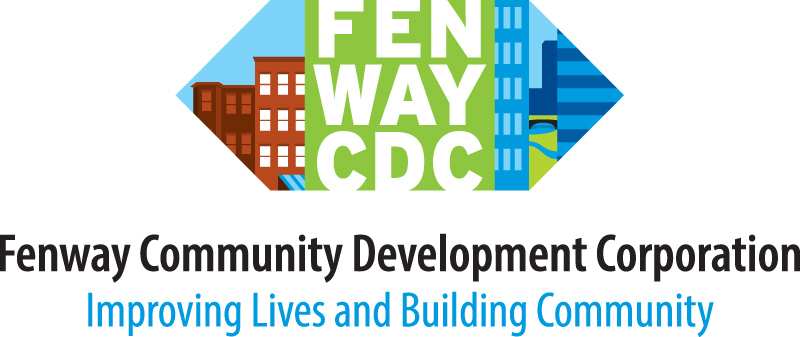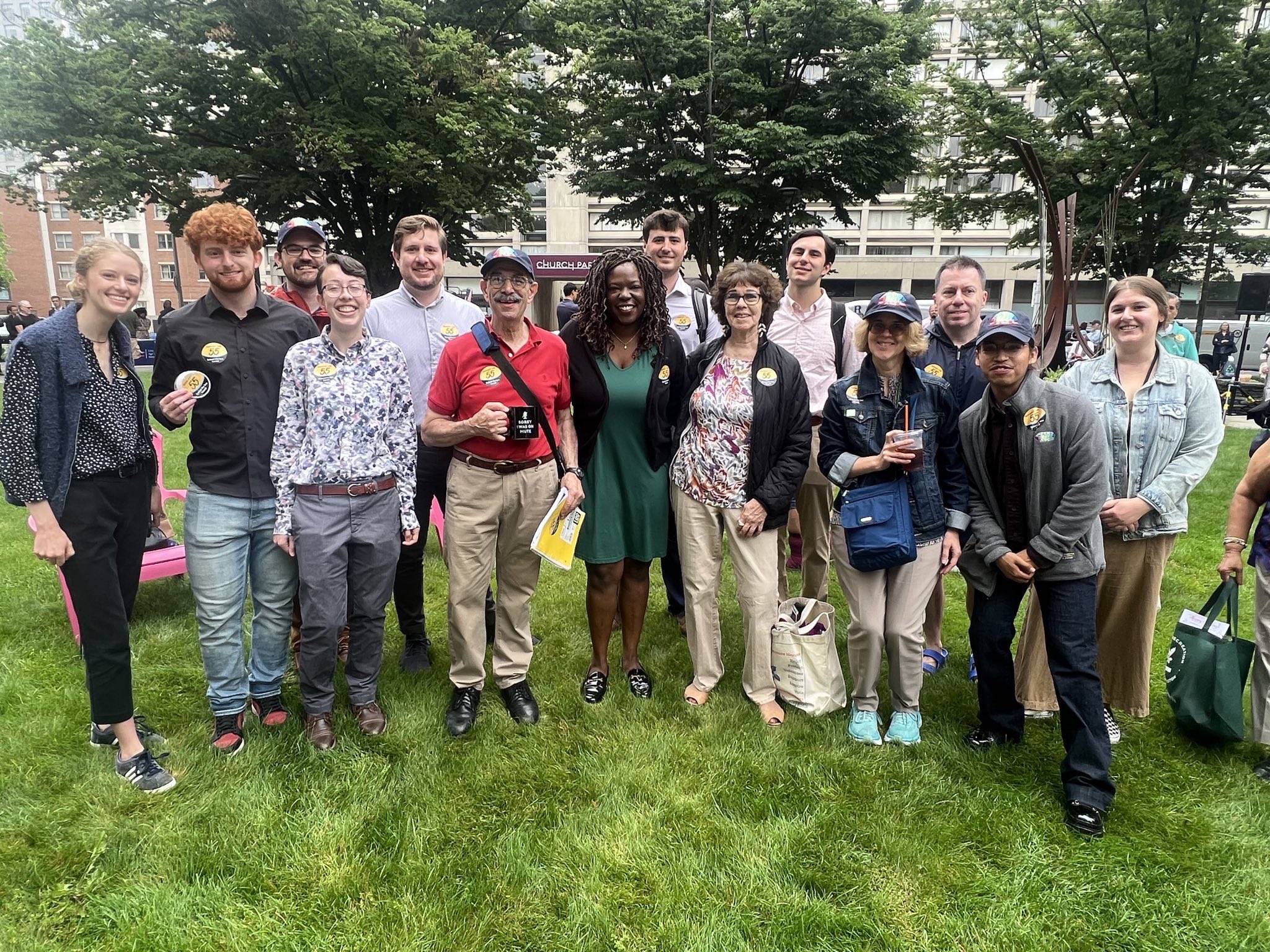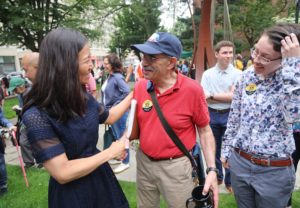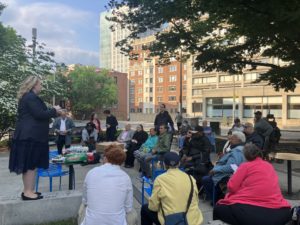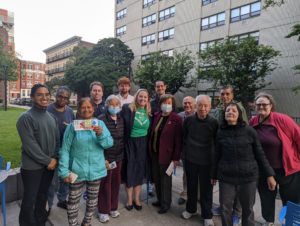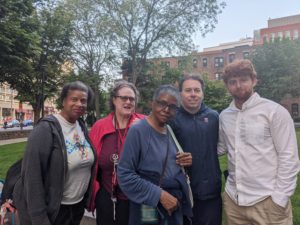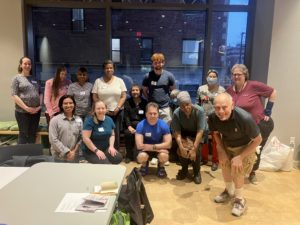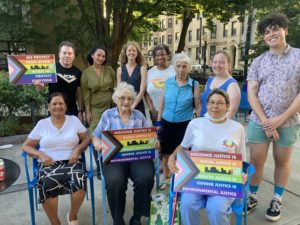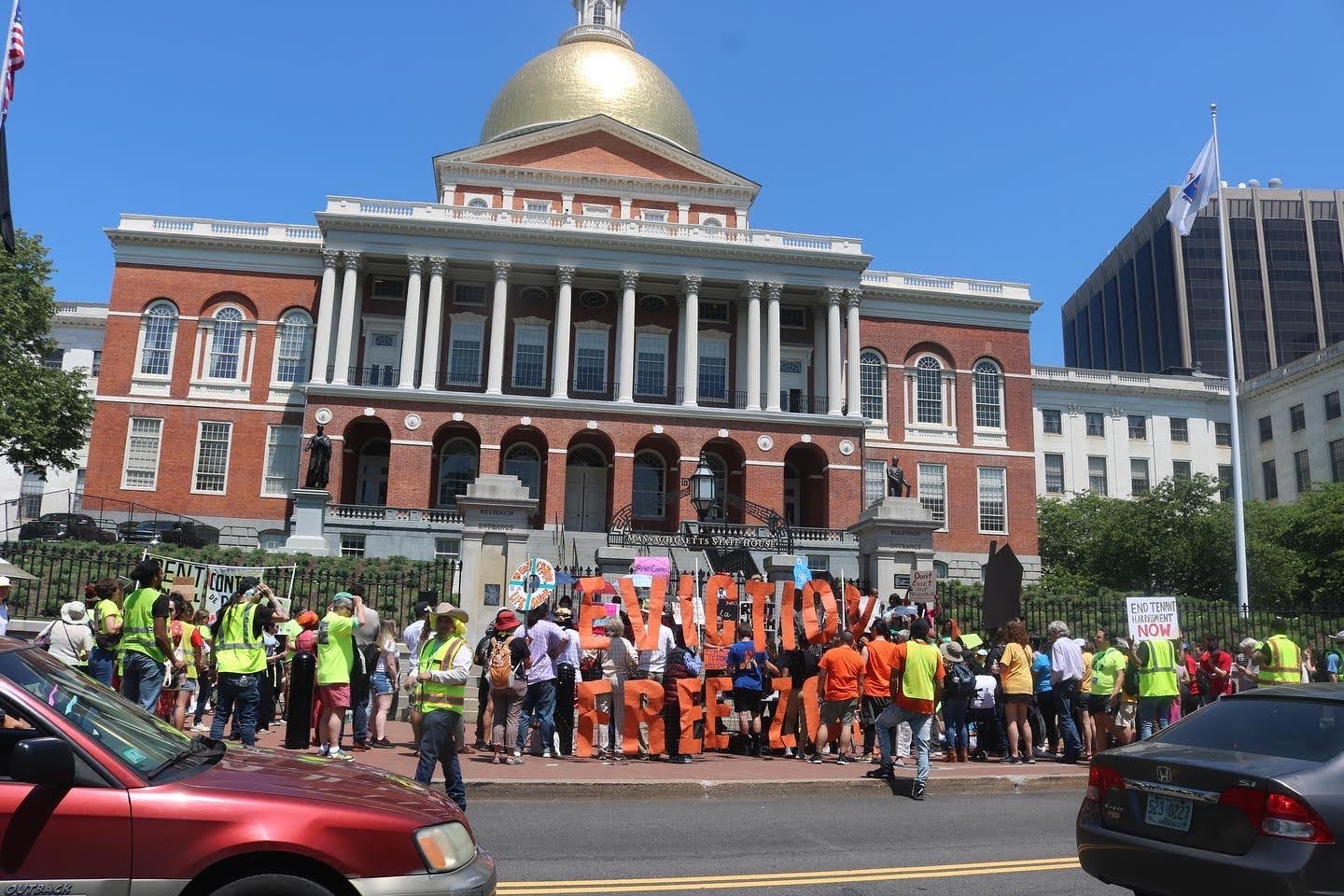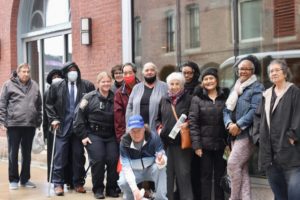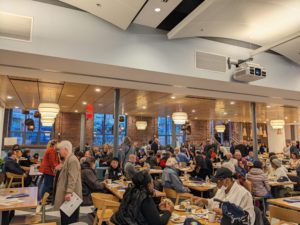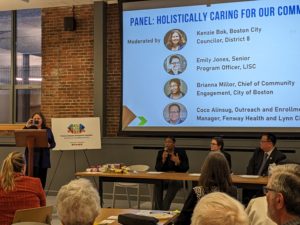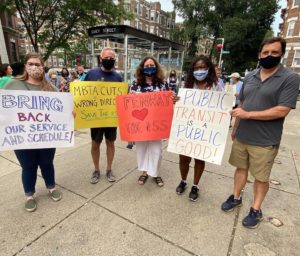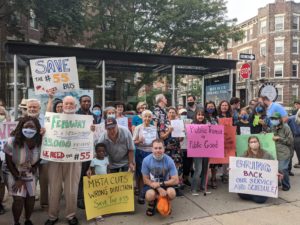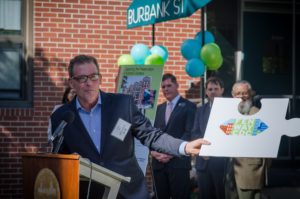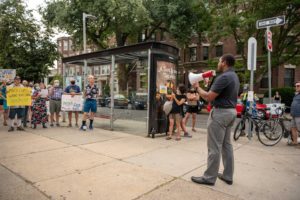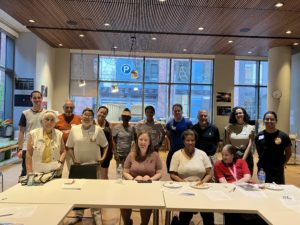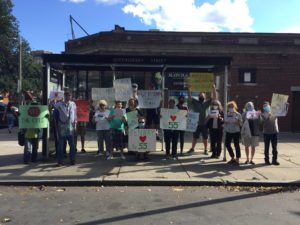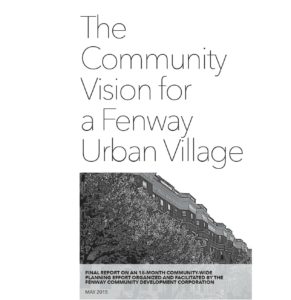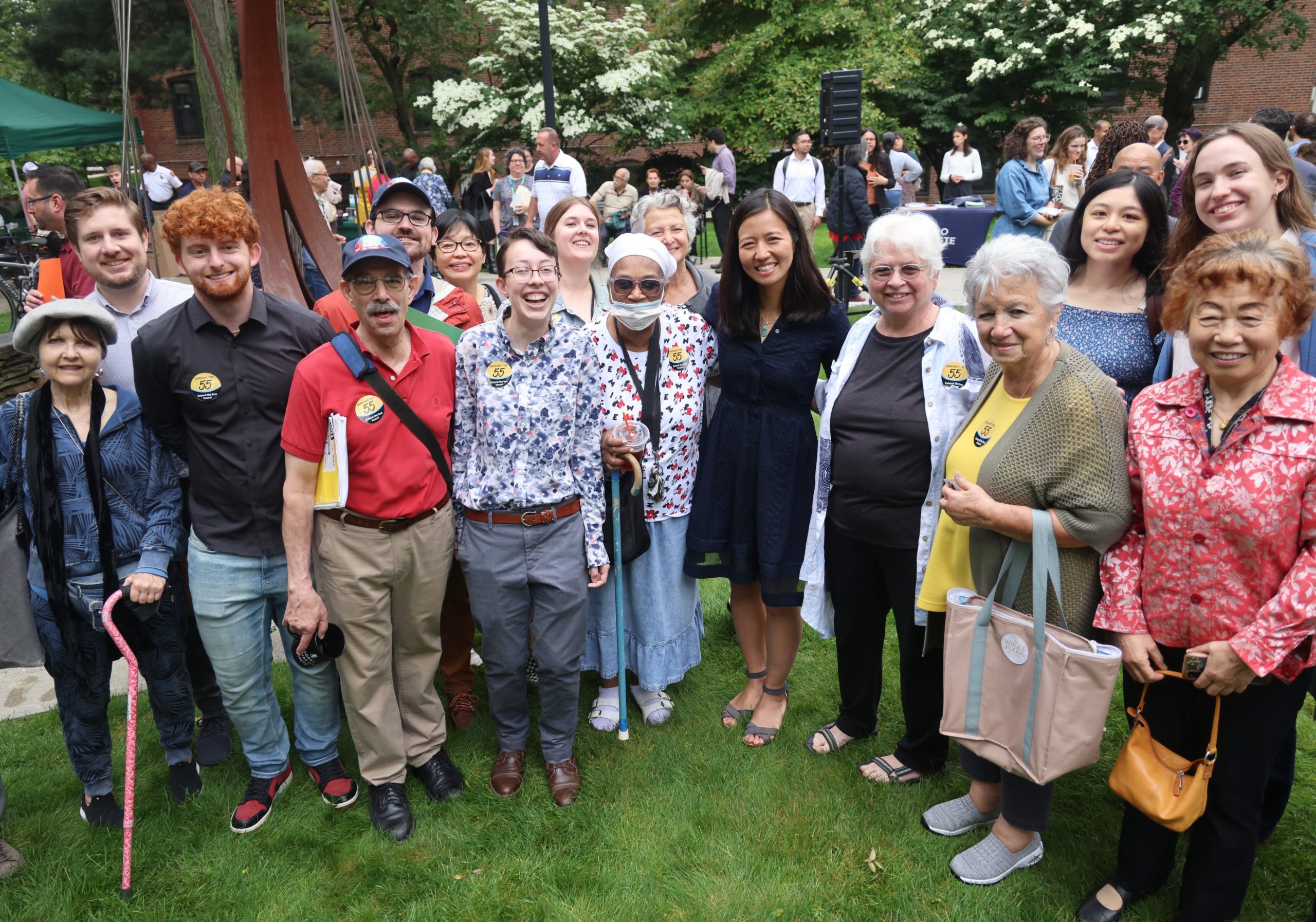
Planning and Organizing
Fenway CDC has been at the forefront of community-based planning and organizing with notable success. We collaborate with non-profit organizations, issue-specific groups, local institutions, elected officials, and resident activists with the goal of securing a more inclusive and sustainable future for our community.
As issues emerge for residents, we support constituencies to address their challenges. Our efforts are guided by a diverse and inclusive coalition that includes individuals of different races, ethnicities, classes, ages, and abilities. Reach out to our Community Organizer Leo Ruiz Sanchez at lruizsanchez@fenwaycdc.org if you wish to connect with the Fenway neighborhood!
Advocating for Affordable Housing Policies
Fenway CDC is part of a range of coalitions and partnerships to advocate for strengthening affordable housing policies, at both the city and state levels. A few of the active campaigns are detailed below.
Inclusionary Development Policy (IDP)
Fenway CDC is a member of the Coalition for a Truly Affordable Boston (CTAB) to improve Boston’s Inclusionary Development Policy. Boston’s IDP program requires a percentage of new housing units to be income restricted. The program is overseen by the Boston Planning and Development Agency. If the policy were strengthened, IDP could provide more deeply affordable homes to Bostonians.
Visit the CTAB website to learn more: www.affordableboston.org
The Tenant Opportunity to Purchase Act (TOPA)
The Tenant Opportunity to Purchase Act (TOPA) would allow Massachusetts cities and towns adopt a preservation, anti-displacement and tenant empowerment tool that can preserve affordable rental housing stock, provide a mechanism for tenant associations to collectively purchase their buildings, and stabilize low-income households. TOPA would allow municipalities the option of providing tenants in multi-family buildings the right to match a third-party offer when their homes are being sold.
Visit the TOPA Coalition website to learn more: www.topa4ma.org
Transfer Fees
As part of the Local Option for Housing Affordability Coalition (LOHA), we advocate for the passage of a transfer fee on luxury real estate sales to generate revenue for affordable housing. If passed and adopted in Boston, it is estimated that approximately $100M of funding per year would be generated for affordable housing.
Visit the Local Option for Housing Affordability Coalition website to learn more: www.realestatetransferfee.org/coalition
Rent Control
Fenway CDC supports lifting the ban on rent control in Massachusetts, strengthening renters rights, and adopting a cap on rent increases. We are working in collaboration with Homes For All MA to enact a statewide enabling act for strong rent control protections in Boston.
Visit the Homes for All MA website to learn more: www.homesforallmass.org
Affirmatively Furthering Fair Housing (AFFH)
Affirmatively Furthering Fair Housing (AFFH) is a municipal effort to implement fair housing mandates from the U.S. Department of Housing and Urban Development in 2015 (later withdrawn by the Trump administration). The Affirmatively Fair Housing Advisory Committee drafted 14 goals and 100+ actions. Our collective work to achieve those goals is to educate the community, support implementation, monitor, and enforce accountability. AFFH requirements have been put into the Boston Zoning Code and into the Boston Planning and Development Agency review process. We seek to educate and empower residents to hold developers accountable to these new requirements.
Visit the BPDA’s website to learn more: www.bostonplans.org/housing/affirmatively-furthering-fair-housing-article-80
Advocating for Transit Justice: The #55 Bus Route Coalition
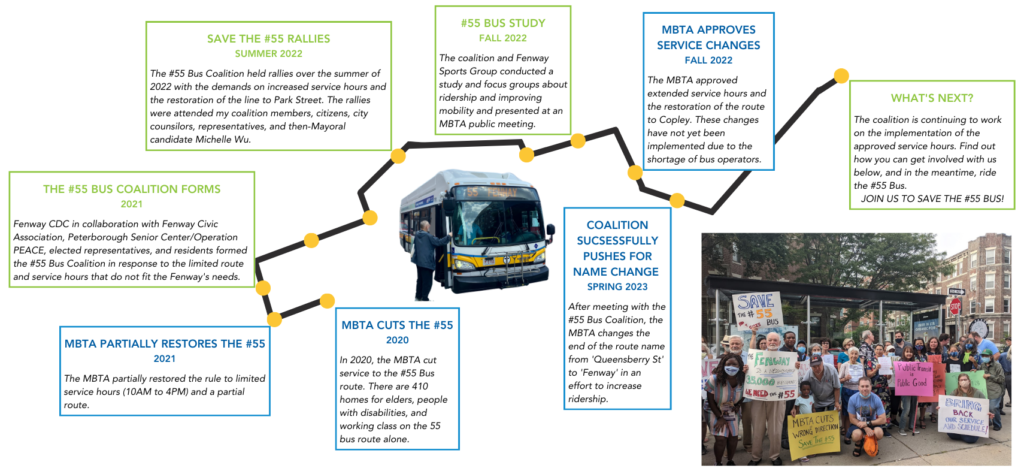
The #55 Coalition was assembled in 2021 in response to #55 cuts, schedule reduction, and a Bus Network Redesign that proposed a route incompatible with community needs. Fenway CDC has supported this coalition as the lead coordinator in collaboration with the Fenway Civic Association, Peterborough Senior Center/Operation PEACE, elected representatives, and residents.
After completely cutting service to the 55 route during the pandemic in 2020, the 55 Bus Route Coalition rallied over several summer months to restore the 55 Bus. We have participated in MBTA’s Public Community meetings with the Bus Network Redesign Project team, attended public hearings, created a petition with 200+ signatures, and conducted a community focus group as part of our advocacy efforts. Recently, the coalition has successfully changed the name on the #55 Bus from ‘Queensberry St’ to ‘Fenway’ to increase awareness of the route’s stops and ridership.
MBTA’s partial restoration of the 55’s bus service (10AM to 4PM) and limited route (ending at Copley instead of Park Street) does not meet current community need, especially for Fenway’s most vulnerable populations and vital service workers.
Tenant Organizing
Fenway CDC has a long history of supporting tenants to preserve “expiring use” units through community organizing. Our efforts have contributed to the preservation of nearly 600 units of expiring use housing. As the only neighborhood-based group in the Fenway working to preserve long-term affordable housing, we are organizing tenants and building leadership from within the community. Our tenant organizing activities promote social and economic diversity as well as social justice.
Our staff have intervened to help hundreds of at-risk residents remain in their homes, manage conflicts with landlords, and advocate for themselves to improve their living conditions. We work with elected officials, other community organizations and CDCs, Greater Boston Legal Services, City Life/Vida Urbana, Massachusetts Alliance of HUD Tenants, and Metropolitan Boston Housing Partnership to provide stabilizing services to Fenway residents.
Organizing Committee
The Organizing Committee is open to all community members who are interested in advocacy and organizing in the Fenway—no experience or knowledge is necessary!
Organizing Committee meetings are held every month, typically on the second Thursday of the month at 6-7:30PM. For more information, please contact Leo Ruiz Sanchez at lruizsanchez@fenwaycdc.org.
Fenway’s Urban Village Plan
The Fenway’s Urban Village Plan is the residents’ vision for the Fenway neighborhood’s growth in the 21st century. We envision building a smart-growth, transit-oriented residential neighborhood in the heart of the city of Boston that welcomes the broadest spectrum of residents.
The Urban Village Plan for the Fenway was first introduced in 1992 and was updated in 2007, 2009, and 2015. Fenway CDC aims to be a catalyst and a partner in the transformation of the Fenway neighborhood into an “urban village” in the narrow modern definition of the planning term: a self-sustainable environment where people can live, work, shop, and entertain in a single urban area.
The Plan consists of the following 5 elements:
1. A sufficient and varied housing supply
2. Access to public transportation and reduced vehicle traffic
3. Community-building facilities such as a community center
4. A healthy business community that serves local residents and visitors while providing employment opportunities
5. Open space and a responsible level of impact upon the environment
Click here to download the latest Fenway’s Urban Village Plan:
(released on May 20, 2015)
